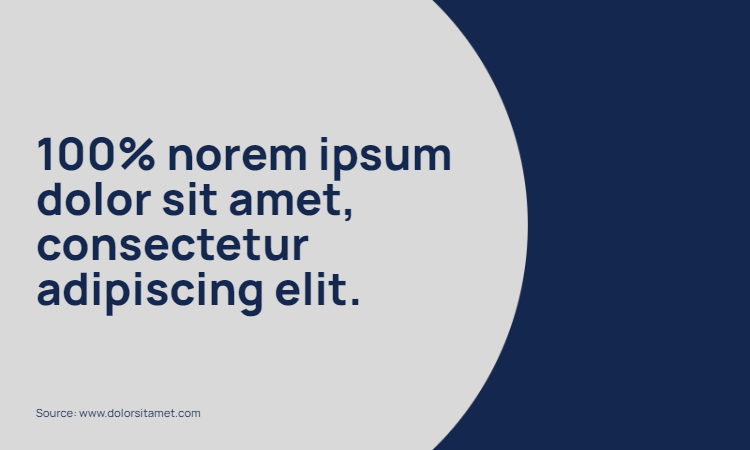Quick Links
We often talk about e-commerce marketing, but do we really know what it is? We are here to dig deep into everything e-commerce marketing.
But before we begin, let us see where we stand in the world of e-commerce.
What is e-commerce?
Ecommerce refers to a business that sells other brands’ products through an online store. Products can be physical items such as shoes, books, and groceries. They can also be online courses, meal subscriptions, or renting fashion items. There are many other examples as well.
COVID-19 has caused an unprecedented increase in e-commerce in recent years, leading many businesses to go digital. Without a doubt, therefore, this is the best time to discuss the concept of e-commerce marketing.

What is e-commerce marketing and why is it needed?
Launching your e-commerce store is simply not enough. In order for people to start spending money with you, they need to get to know you. This is where e-commerce marketing comes in.
E-commerce marketing includes promotions that lead online shoppers to your store and through the buying process. In a nutshell, e-commerce marketing helps online retailers, do the following:
- Build awareness about your ecommerce store
- Drive traffic to the store
- Convert visitors into paying customers
- To attract and engage existing customers, provide them with personalized offers through the appropriate channels. This will improve their shopping experience and increase their loyalty and satisfaction.
Developing your e-commerce marketing plan
Before starting your ecommerce marketing strategy, make sure to create a written plan to guide you during its implementation.
- Step 1: Set goals for your online store by reviewing industry benchmarks and aligning them with your objectives.
- Step 2: Understand your ideal buyers and competition. Know their characteristics, interests, purchasing power, and other demographic, geographic, and psychographic traits. Collect this information and create multiple buyer personas.
- Step 3: Plan how to market your product. Decide on the actions that will help you reach your marketing goals. This will allow you to select the right marketing methods and strategies. These methods and strategies will help you meet your sales targets.
- Step 4: Create Your martech stack: Determine the marketing platforms you should utilize and discover the software and applications that simplify the automation and control of marketing tasks across various platforms.
So, without further ado and after looking at the steps towards developing your e-commerce marketing strategy, let’s see the various marketing channels and recommended e-commerce tools you can use to achieve your goals and objectives.
Building your e-commerce marketing strategy
Online marketers can use various digital channels like social media, search engines, email, and website content.
To understand e-commerce marketing, here are common channels and how to use them for a successful online store.
Social Media Platforms
E-commerce can benefit tremendously from social media platforms and there are four reasons for that:
- They are visual media, thus making it easy to persuade people through images and videos.
- People do not always perceive product ads as intrusive.
- The rise of social commerce, such as Facebook Shops and Instagram Shopping, facilitates e-commerce marketing efforts.
It is essential therefore for an e-business to establish a presence on today’s most popular social networks to connect with its audience and post content that the audience is interested in.
However, take note, not every social network is a good fit for your needs.
Instagram is beneficial for e-commerce. It allows you to share high-quality product photos and expand your reach beyond your website. You can make shoppable content on social media, which allows visitors to buy things immediately.
Another way social media can assist your e-commerce efforts is through product reviews, which are also a great way to up your conversion game. With a Facebook Business Page, you can share product praise through user-generated content, helping you build trust and loyalty in your product and brand.
Content Marketing
Content writing is an essential component of e-commerce marketing, effectively increasing conversions. That is why you can implement content marketing in a range of different areas in e-commerce marketing.
Here are some tips on how you can use content marketing to help your e-commerce marketing strategy:
- Product pages: From headlines to product descriptions you can optimize your product pages for short, product-driven keywords that will return your e-commerce store for the right query.
- Blog Posts: Create valuable content for your prospects and customers, like infographics, checklists, or how-tos. You can create posts that make people think about your product and potentially become customers as they interact with your content.
- Rich Media: When we say content, we don’t only mean written content. Try out videos, podcasts, or other interactive media related to your product and helpful to your audience.
To learn how to use the product, you can watch tutorial videos. This will make customers happy and help form lasting relationships with website visitors. - FAQ section on your website: If your audience is asking questions related to your product, then you need to step up and answer them. To boost your e-commerce store’s success, create a FAQ page on your website. Include answers to popular keyword searches to attract more users and increase site traffic.
Search Engine Optimization
In order to break through the clutter and capture people with high purchase intent, you need to have a good enough SEO strategy.
Search engine optimization (SEO) makes your website more visible and easily discover-able on search engine result pages, organically.
Here are some tips to use in order to make your e-commerce rank higher up:
- Make it mobile-friendly.
- Optimize page load time
- Run an SEO audit
- Perform thorough keyword research and identify keywords that potential customers would use when searching for products like yours
- List all product, category, and blog posts and pages
- Create a Google My Business profile to strengthen local presence
Perform e-commerce SEO on product page copy, your home page, and your meta description, as well as your FAQ page. Additionally, a blog can greatly help your SEO efforts.
Search Engine Marketing
While SEO is all about knowing Google’s algorithm to optimize content, SEM allows you to pay for top spots on search engine results pages. The most popular options for search engine marketing involve:
- Pay-per-click (PPC, Google AdWords): They guarantee that you wil appear on top of search results when potential buyers enter search terms that match the terms of your campaign.
- Google Shopping: a free service where you can list your entire product range with images and prices, capturing high-intent shoppers
- Display campaigns: Banner ads on sites appearing based on searches and browsing behavior
Email Marketing
Email marketing is one of the oldest forms of digital marketing and a key strategy for e-commerce marketing.
Here are some ways an e-commerce marketer might use email marketing to engage and convert subscribers:
- Welcome email: To be sent during a subscriber’s onboarding to your website and brand
- Drip nurture email: A series of emails with content informing and educating about the product, sent until the person is ready to convert
- Abandoned cart email: You can send an email to remind customers to complete their purchase. You can also help them or recommend other items to make them come back to your online shop.
- After-purchase email: We dispatch the after-purchase email to customers who have acquired from your website, aiming to foster a stronger bond with them and encourage additional purchases.
- Send upsells and cross-sells when there are new offers with products related to past purchases.
- Send a win back email to reactivate a long-dormant idle customer.
- Loyalty reward email: To be sent as a thank you to loyal customers with a next-level discount, or a freebie
- Ecommerce newsletter: Send it as a regular update on your brand and products to stay top-of-mind.
In order to do all of the above, it is important to choose the right email marketing service for your business needs. It must have the capability to send transactional emails, such as order confirmations, tracking updates, and password resets. It should also send automated emails, which are triggered automatically by a certain condition being met or a customer’s action. Additionally, it
SMS Marketing
SMS marketing is another essential tool for your e-commerce marketing toolkit.
Sending text messages for promotional purposes can drive conversions for your e-commerce business, especially when you use them for alerts, updates, and time-limited offers that require immediate reading. So, use them to support your e-mail marketing strategy and drive urgency and online traffic, to get your customers in-store.
Shipping updates are another tool used by e-commerce businesses to keep their customers informed on their orders and purchases.
Customer Service and Support
Online stores occasionally face different problems in their logistics, which can lead to frustrated customers. To solve this issue, it is important for e-commerce stores to have a prompt customer service department in place. Shoppers can talk to them using phone, email, live chat, or AI chatbots for real-time communication.
Get on with your e-commerce marketing strategy
With all that being said, developing an e-commerce marketing strategy may seem a bit complicated. To succeed, create a marketing stack that combines all channels and automates daily tasks. This way, you can concentrate on growing your business instead of dealing with tedious tasks. For an eCommerce business, benefits include reduced staff costs, improved accountability, and more consistent marketing of creative content.
Creating automated campaigns might seem daunting at first, yet if you choose the right partner it can be a breeze.
The key to a successful e-commerce marketing strategy lies in building a marketing stack that can automate tedious daily tasks, so you can focus on what’s important, like growing your business.
WayMore provides everything you need in order to take control of your e-commerce marketing actions. It can bring together all the right tools for your communication needs. You can easily manage your e-commerce marketing efforts by keeping track of customer data. This will help you gain a complete understanding of your customers. The system is easy to use and comes with an automated strategy. With our advanced analytics, you can determine if your e-commerce marketing is effective and predict future results.
Get ready to do way more with your e-commerce marketing strategy.




